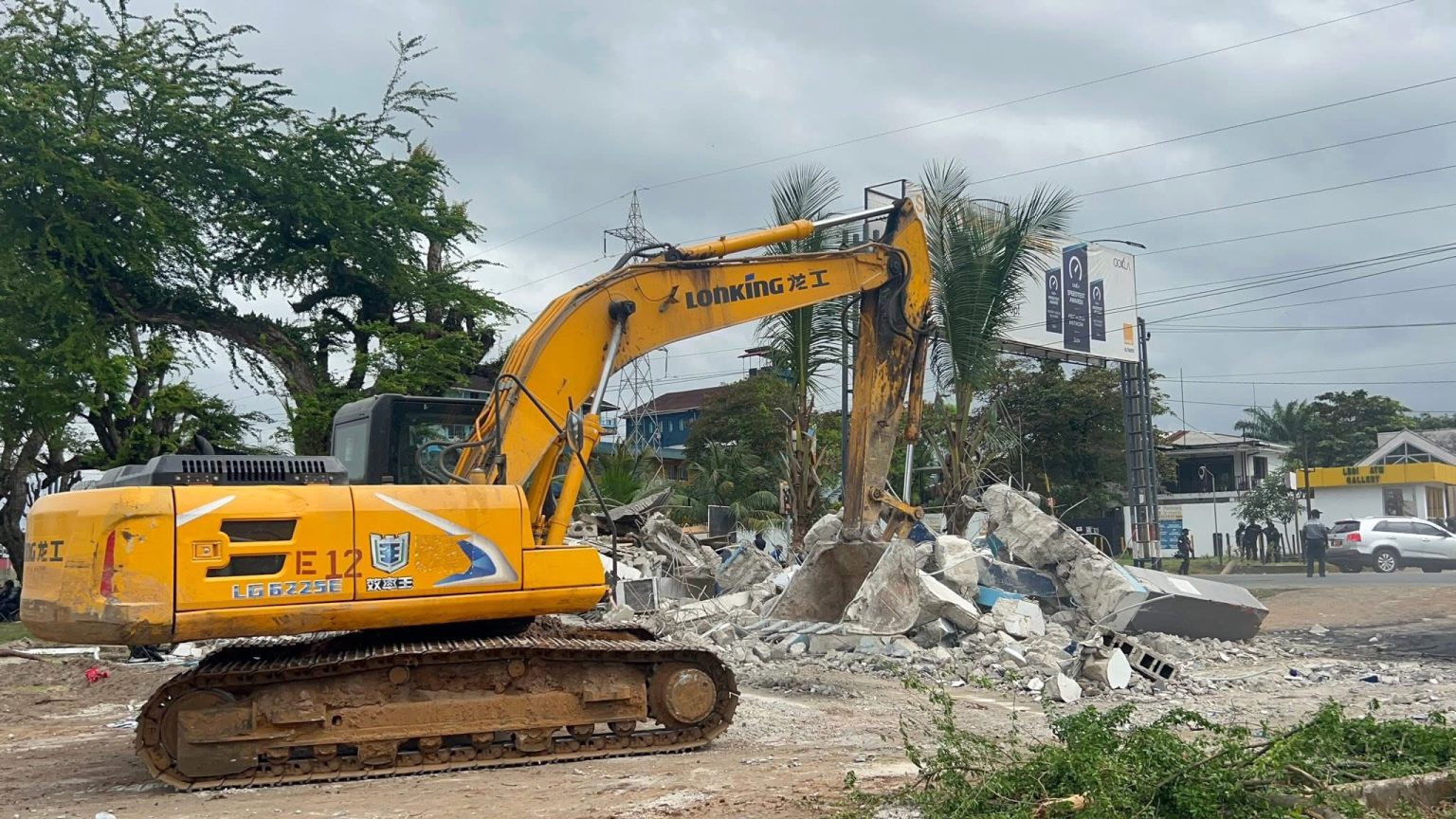The demolition of the former ruling Congress for Democratic Change (CDC) headquarters in Monrovia, Liberia, has ignited a firestorm of accusations and denials, with CDC partisans squarely blaming the current administration of President Boakai for orchestrating the event. The demolition, which followed a court order, has deepened the existing political rift between the CDC and the ruling Unity Party, further fueling suspicion and mistrust. CDC supporters, already wary of the new administration, see the demolition as a deliberate act of political sabotage aimed at weakening their party. This perception is amplified by the timing of the event, coinciding with the CDC’s efforts to regroup and regain political momentum. The party faithful view the destruction of their headquarters as a symbolic attack on their resurgence, bolstering their conviction that the government is actively working against them.
The government, however, vehemently denies any involvement in the demolition, attributing it solely to a long-standing legal dispute between the CDC and the Stubblefield family, the rightful owners of the property. Information Minister Jerolinmek Piah insists that the government played no role in the court proceedings or the subsequent demolition, emphasizing that the administration has no interest in interfering with private property disputes. Piah further asserts that the demolition order was executed by the court and carried out by the property owners, absolving the government of any responsibility. He redirects blame towards former Attorney General Cllr. Musa Dean, suggesting that the legal proceedings were initiated during the previous administration. The government maintains that it is merely an observer in this private matter and is being unfairly targeted by the CDC.
The heart of the contention lies in the deep-seated political rivalry between the CDC and the Unity Party. The CDC, still smarting from its electoral defeat, views the Unity Party with suspicion, interpreting any setback as a deliberate act of political maneuvering. This underlying animosity fuels their belief that the government is exploiting the legal dispute to undermine the CDC. They argue that even if the court order was legitimate, the government could have intervened to prevent the demolition, given the political sensitivity of the issue. The CDC’s distrust of the government is so entrenched that they see a hidden hand behind every misfortune, further exacerbating the political divide.
Adding fuel to the fire is the CDC’s argument that the government’s inaction in halting the demolition, despite its stated commitment to reconciliation and unity, speaks volumes about its true intentions. They contend that a government genuinely committed to healing the nation’s political divisions would have taken steps to prevent such a provocative act, particularly against a major political party. The CDC interprets the government’s inaction as tacit approval of the demolition, further solidifying their belief that the administration is actively working against them. This perceived betrayal reinforces their determination to resist what they see as an orchestrated campaign to marginalize their party.
Former President George Weah, a prominent figure within the CDC, has appealed for calm amidst the growing tensions. Recognizing the potential for further escalation, Weah has called on his supporters to refrain from retaliatory actions and instead focus on rebuilding. He has appointed a committee to oversee the construction of a new party headquarters, emphasizing the importance of unity and resilience in the face of adversity. Weah’s call for calm aims to prevent the situation from spiraling into further conflict, emphasizing the need for constructive engagement rather than destructive confrontation. His leadership is crucial in navigating this delicate situation and preventing further polarization within the already fractured political landscape.
The demolition of the CDC headquarters serves as a stark reminder of the fragility of Liberia’s political landscape. The incident has exposed the deep-seated mistrust and animosity that continues to plague the nation, hindering efforts at reconciliation and progress. While the government maintains its innocence, the CDC remains unconvinced, viewing the demolition as a symbolic attack on their party and a testament to the enduring political divisions that continue to shape Liberia’s future. The path forward requires a commitment from all parties to engage in constructive dialogue, address underlying grievances, and build trust. Without such efforts, the cycle of accusation and denial will continue, further entrenching the existing divisions and hindering Liberia’s progress towards a more stable and unified future.


